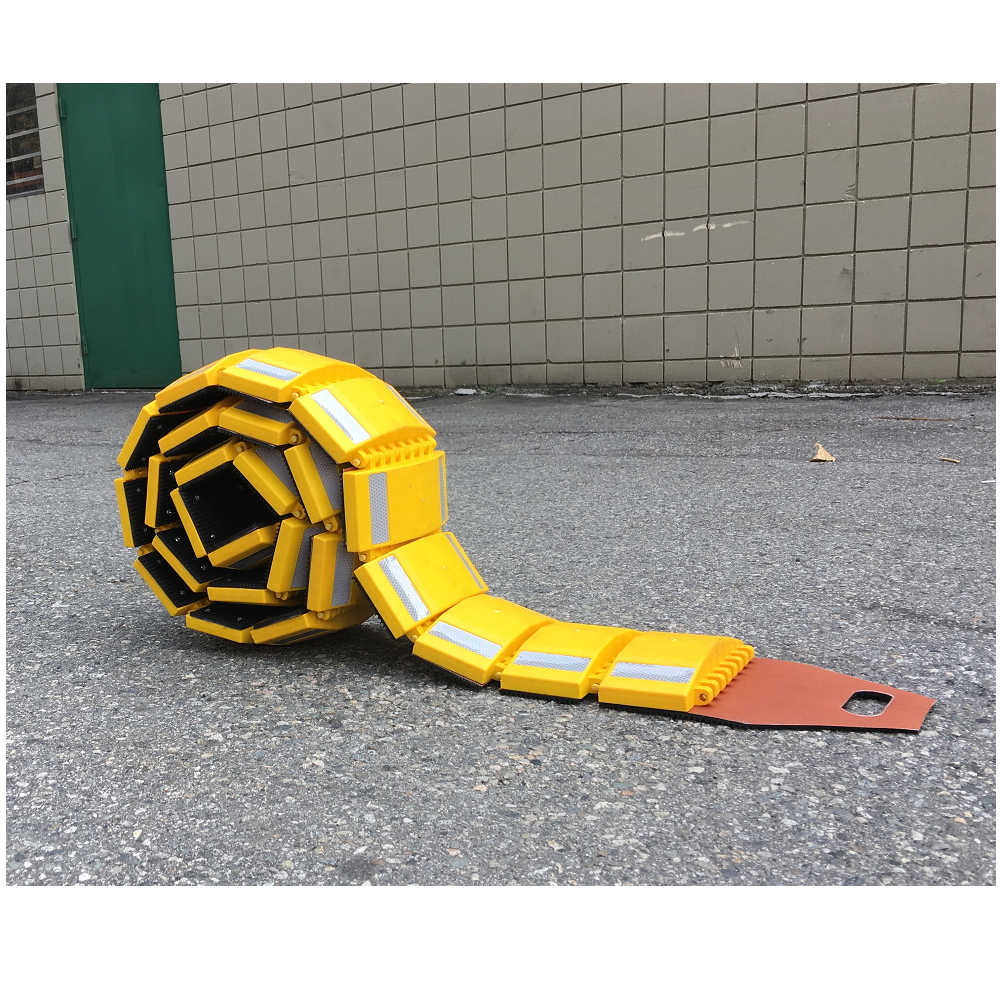Portable speed bumps have emerged as a practical solution for managing vehicle speed in various environments. These innovative traffic control devices offer flexibility and ease of use, making them an excellent choice for temporary traffic calming. This article explores the benefits, features, and ideal applications of portable speed bumps, emphasizing their role in enhancing safety and traffic flow.
Portable speed bumps are typically constructed from durable materials like rubber or plastic, allowing for easy installation and removal. Unlike traditional speed bumps, which are fixed in place, portable versions can be repositioned based on specific needs, such as during events or construction work. Their design is lightweight, making them easy to transport and set up wherever necessary.
One of the most significant advantages of portable speed bumps is their ability to improve safety. By lowering vehicle speeds in areas with high pedestrian traffic, these devices can significantly reduce the risk of accidents. This is particularly important in school zones, parking lots, and event spaces where children and families are present. The visibility of portable speed bumps, often enhanced with bright colors and reflective markings, further aids in alerting drivers to slow down.
Another key feature of portable speed bumps is their versatility. They come in various sizes and heights, allowing for customization based on specific requirements. Whether you need a low-profile bump for gentle speed reduction or a more pronounced bump for areas with severe speed issues, there is a portable solution available. This adaptability also makes them suitable for different surfaces, including asphalt, concrete, and gravel.
The ease of installation is a significant benefit for those managing traffic in dynamic environments. Portable speed bumps can be set up in minutes, allowing for quick responses to changing conditions. For instance, during construction projects, these bumps can be placed to direct traffic safely around work zones. After the project is completed, they can be easily removed or relocated, minimizing disruption to traffic flow.
Cost-effectiveness is another compelling reason to consider portable speed bumps. Compared to permanent installations, which can be expensive and time-consuming to install, portable versions require minimal investment. They can be used repeatedly in different locations or events, providing excellent value over time. This makes them a popular choice for municipalities, schools, and businesses that need an efficient traffic management solution without breaking the bank.
In addition to enhancing safety and being cost-effective, portable speed bumps are environmentally friendly. Many models are made from recycled materials, contributing to sustainability efforts. By using portable speed bumps, communities can take proactive steps towards improving safety while also being mindful of their environmental impact.
The applications for portable speed bumps are vast. They are commonly used in school zones to protect children during drop-off and pick-up times. In parking lots, they help manage traffic flow and reduce speeds, ensuring a safer environment for pedestrians. During community events or festivals, portable speed bumps can be deployed to create safe pathways for visitors while controlling vehicle access. Additionally, construction sites benefit from their use by guiding vehicles and ensuring that speeds remain low around workers and equipment.
In conclusion, portable speed bumps offer a practical and effective means of managing vehicle speeds across a range of settings. Their combination of safety, versatility, and ease of use makes them an ideal choice for temporary traffic control. As communities continue to seek ways to enhance safety and streamline traffic flow, the popularity of portable speed bumps is sure to grow, making them a vital tool in effective traffic management strategies.

